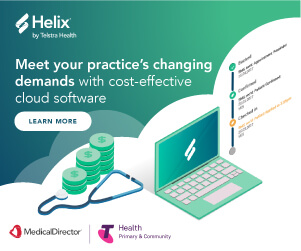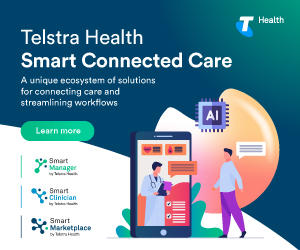3 Digital innovations that can support obstetric care
From virtual reality to wearables, digital innovation has opened up exciting opportunities to offer more personalised obstetric care. We explore three innovations that are changing the way health professionals and patients can manage the pregnancy journey.
1. VR and AR innovation and pregnancy
Advances in obstetric care through virtual reality and augmented reality are starting to surface with programs like The Road To Birth, which offers a detailed, realistic 3D figures exploring the gestation period. It incorporates a pregnancy timeline, key anatomy and circular systems as well as expert commentary from experienced midwives during each stage of pregnancy. Users can also explore the program to investigate the internal changes as the baby develops.
With real-life visuals playing out in real-time, this progressive technology is transforming our current health industry by enhancing a patient’s experience, as well as helping health professionals to understand pregnancy in a new perspective.
Innovation Manager, Craig Williams from The University of Newcastle says, “The benefit of an educator being able to utilise VR and AR to teach these complex areas of study is that there is a clear working depiction of the subject right before their eyes, which can be projected and shared with a classroom. Health resources are often a textbook picture, which can lack detail, or a real-life subject, which involves the consent of a third-party.”
2. The impact of ‘Wellness wearables’ on pregnancy and motherhood
The increase of fitness apps, smartwatches and wearables have revolutionised how we receive access to tailored health information. A recent report from the Flurry Analytics, found health fitness app usage has become increasingly popular, growing over 330% in just 3 years. The report also found three quarters of active users engagement with these apps have increased to opening their app at least twice a week.
Purdue University researchers revealed they are developing an app and wearable technology to enable pregnant women to use a smartphone to detect whether they have or are susceptible to a condition that could lead to serious health complications for them or their unborn child.
Funded by the Bill & Melinda Gates Foundation, the team, led by Craig Goergen, an assistant professor in Purdue’s Weldon School of Biomedical Engineering, are set to develop ‘a low-cost automated early detection sensor of preeclampsia,’ a pregnancy complication caused by high blood pressure that can cause organ damage and premature birth.
“We hope this will allow us to predict and prevent preeclampsia and reduce the number of children born prematurely each year. This could also reduce the long-term health complications for mothers,” Goergen said.
3. Using technology to boost obstetric patient experience
Every touchpoint of a patient’s journey when visiting a practice is vital to the patient’s overall experience and satisfaction with the practice’s ability to offer personalised, quality care. This includes minimising lengthy waiting times – that can be an inconvenience for both the doctor and patient.
Specialist practice management software tools such as Bluechip, can help save time and streamline the booking and patient management system. The software allows for doctors and support staff to oversee all upcoming bookings online, choose from multiple appointment book templates to boost bookings, plus save time by automatically generating custom reports. Importantly, you can simplify the process of reminding patients of their upcoming appointments and reduce no-shows with automated SMS reminders and alerts.









